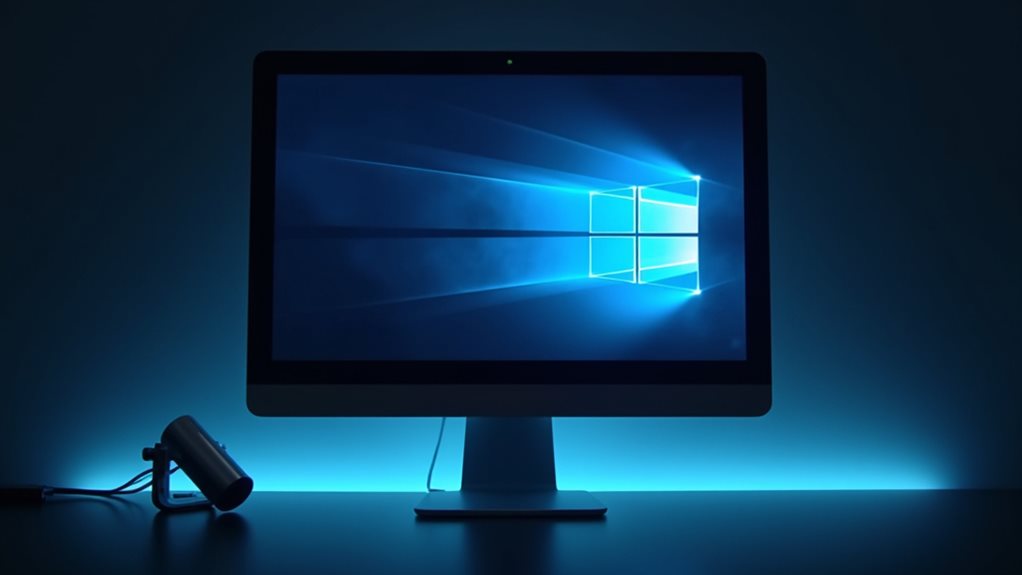Windows 11 Brings Back a Controversial Vista Feature That Could Change Your Desktop

Windows 11 resurrects the controversial Recall feature, designed to improve user interaction with AI-powered efficiency. This throwback from Vista aims to capture screenshots of user activity, streamlining document retrieval. Nevertheless, privacy advocates remain wary; early iterations snagged sensitive data like passwords. Microsoft mitigated backlash by shifting Recall to an opt-in feature, raising questions about data security and encryption. Will this tool truly elevate productivity, or will users be left juggling innovation and privacy? More insights await.

Windows 11’s new Recall feature promises to transform how users interact with their desktops, but it’s ignited a firestorm of privacy concerns. Imagine your computer remembering everything you do without you needing to lift a finger. That’s exactly the idea behind Recall, which captures screenshots of a user’s activities every few seconds—all powered by advanced AI models. The intent? To let you hunt down and retrieve that elusive document or fleeting detail you might have missed. The implications are intriguing, yet murky territory for a technology fascinated by convenience.
When Recall was first rolled out, many users were enthusiastic, eyes sparkling at the prospect of integrated AI capabilities with Windows Copilot. Nevertheless, early versions of the feature came loaded with privacy issues. Some of these snapshots captured sensitive information like passwords and credit card numbers, laying bare what many saw as a potential “security nightmare.” Privacy advocates raised red flags, fearing an automatic collection of sensitive information that could lead to data misuse. Even apps like Signal and Brave quickly moved to block Recall from capturing their potentially private exchanges. That’s enough to make even the most tech-savvy users pause and reconsider their digital footprints. Using WPA2 encryption for network connections could help protect sensitive data captured by Recall from unauthorized access. Much like polymorphic malware, Recall’s constantly changing data collection patterns make it challenging for security experts to establish reliable detection methods.
Early excitement for Recall’s AI integration quickly turned to concern as敏感信息风险 surfaced, prompting privacy advocates to raise alarms.
A wave of backlash caused Microsoft to hit the brakes on the feature’s initial release. Through earnest public relations maneuvers, the company shifted Recall from an automatic default to an opt-in feature, putting control back into users’ hands. So far, so good, right? Microsoft furthermore bolstered encryption protocols, promising that all data would remain local and inaccessible to external access—including Microsoft itself. The question remains, nonetheless: can users genuinely trust that promises of encryption and local storage will hold water? Or will future versions of Recall develop a penchant for overreach? In fact, a recent report indicated that Recall sometimes captures sensitive information in screenshots, further complicating user trust.
The Recall feature, although partially mired in controversy, is primarily available for Copilot+ PCs. Early testers in the Windows Insider program have called it a glimpse into the future, with functionality that spans across Windows Search, File Explorer, and beyond. Filters allow users to exclude certain apps or websites, providing some semblance of control amid an uncertain environment.
One could argue it’s a necessary step towards seamless digital interactions, but isn’t it likewise a slippery slope? With AI-generated prompts powering the swift retrieval of snapshots, one has to ask: are we enhancing efficiency, or simply serving ourselves up on a platter to convenient data collection? In a world where convenience often trumps security, niche discussions about encryption technology and snapshot protocols are imperative.
As the dust settles on this controversial feature, one thing is clear: users will need to tread cautiously as they navigate the treacherous waters of AI-enabled desktops. In the end, Recall might just reshape our user experience, but at what cost to privacy?
Final Thoughts
Windows 11 has reintroduced a controversial feature from Vista, aiming to reshape the user experience. While some users appreciate the potential for better organization, others are reminded of the frustrations from its previous version. Tech expert Sarah K. describes it as “a gamble — nostalgia versus efficiency.” As users navigate this mix of old and new, it’s uncertain whether this feature will boost productivity or lead to confusion.
At Zoo Computer Repairs, we understand the challenges that come with adapting to new features and can assist you in optimizing your Windows 11 experience. If you need support or have questions, don’t hesitate to reach out. Click on our contact us page to get in touch!
